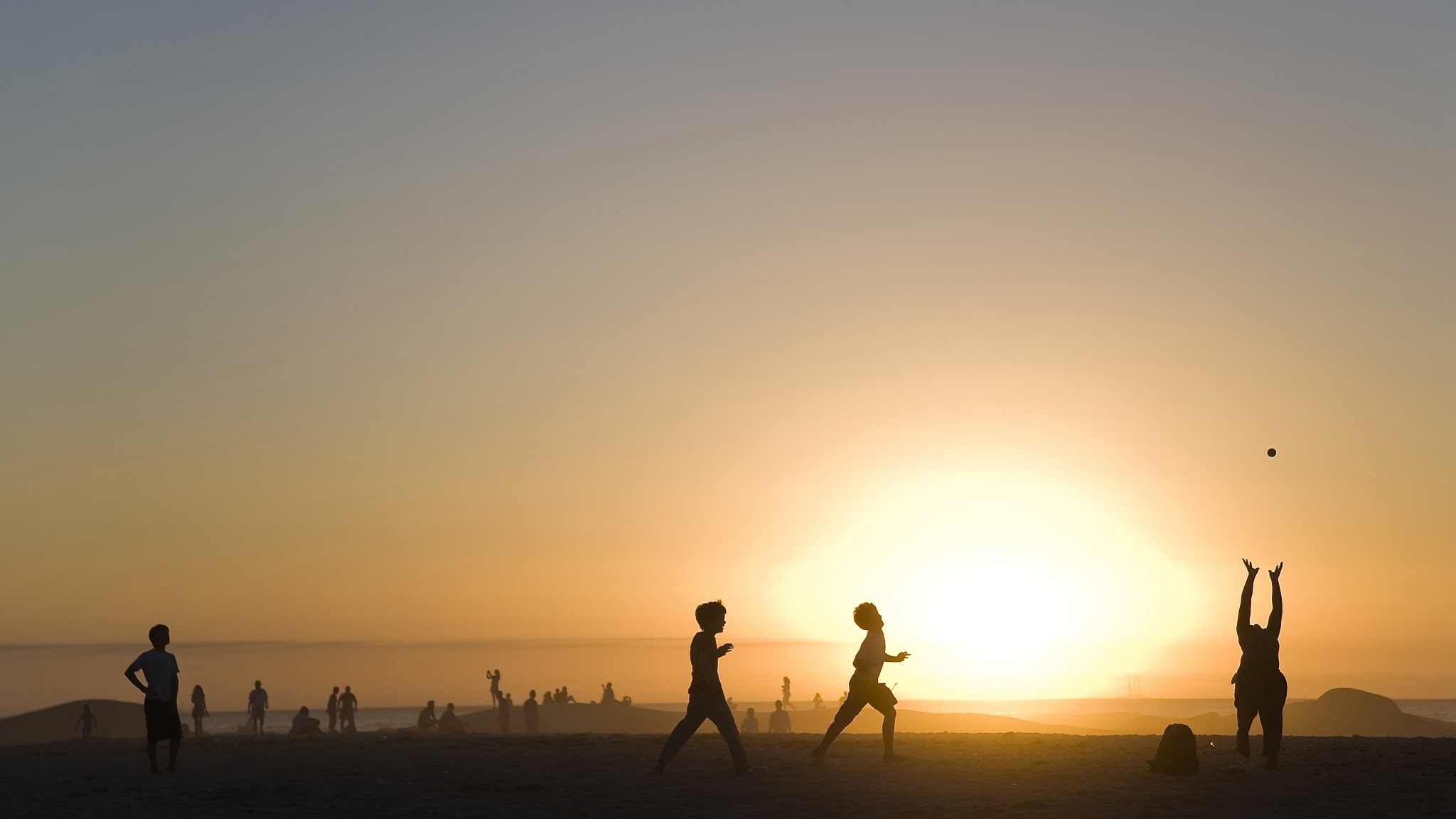A vast continent stretching from the deserts of the Sahara to the fertile tracts of Nile, from the Atlas Mountains in the North to the Cape of Good Hope in the South; this might be the first picture that comes to your mind when you think of Africa.
With its expansive landscapes and formidable animal life, Africa is filled with amazing sights for travelers. In addition to the natural beauty, the land has also nurtured a few of the world's influential icons including politicians, artists, athletes and social activists. Through passion and courage, they've gained love and respect from around the globe. Let's take a look at some powerful personalities.
Nelson Mandela: Africa's most recognizable face
As the first president elected democratically in the history of South Africa, Nelson Mandela made a big impact during his 95 years on Earth. He remained a global icon for his long struggle against white-minority apartheid rule and his message of reconciliation after being freed following 27 years in prison.
Mandela and peace are synonymous. Equal opportunity, political rights and social justice are the things that the Nobel Peace Prize laureate has spent his life fighting for. Every year on the great man's birthday, July 18, the United Nations asks individuals around the world to mark Nelson Mandela International Day by making a difference. Even today, the ideal so cherished by him remains a dream for far too many.
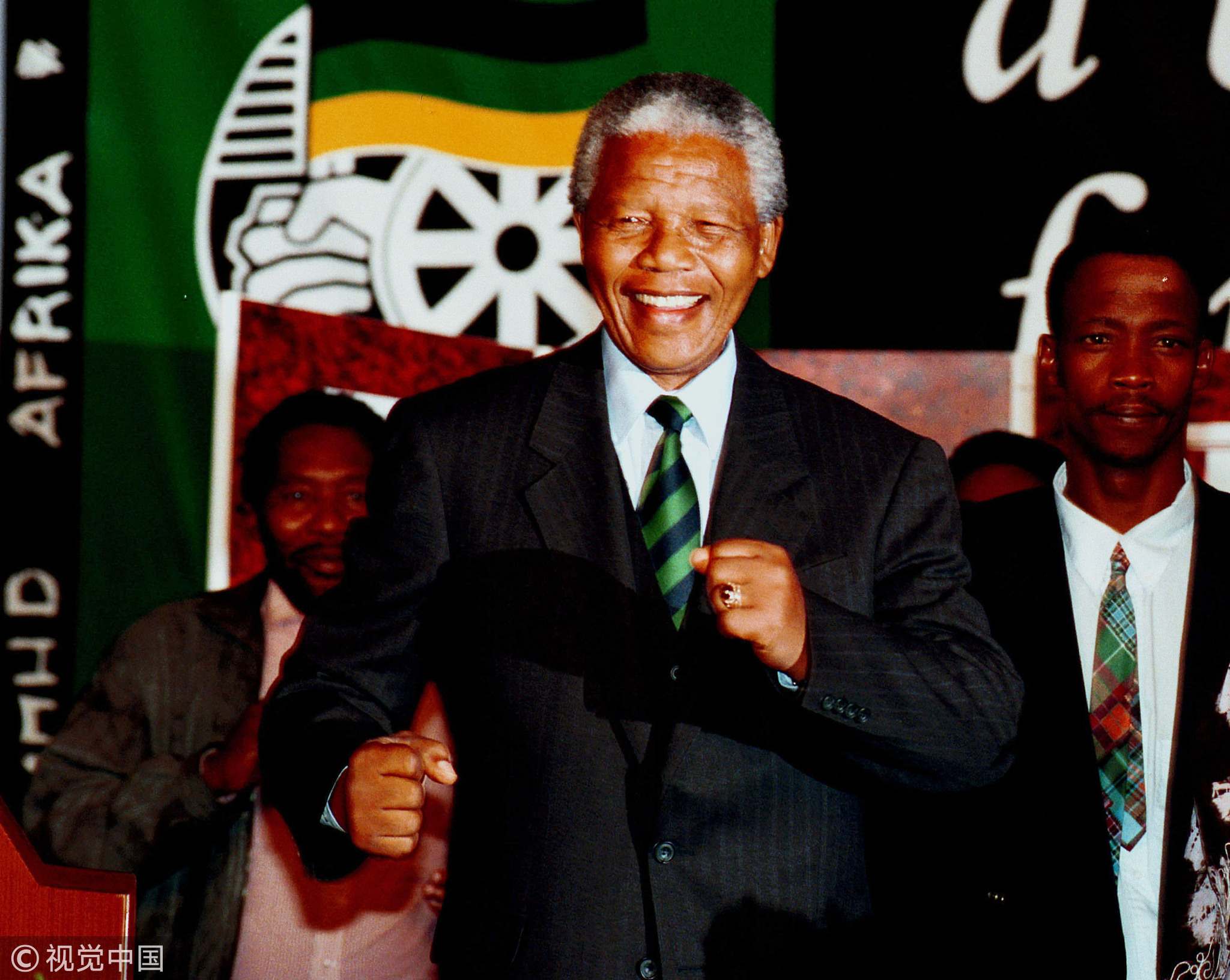
Nelson Mandela celebrates his historic election win at the ANC victory party on May 2, 1994, at Carlton Hotel in Johannesburg, South Africa. /VCG Photo
Nelson Mandela celebrates his historic election win at the ANC victory party on May 2, 1994, at Carlton Hotel in Johannesburg, South Africa. /VCG Photo
Kofi Annan: Africa's greatest diplomat of all time
Recently passing away at the age of 80, Kofi Annan was a master mediator who fought all of his life for a more just and peaceful world. Starting as a Ghanaian diplomat, he went on to become the seventh secretary-general of the UN and served two terms from 1997 to 2006, bringing remarkable reforms to the functioning of the organization.
Annan resolved conflicts between different nations in a peaceful manner. He strongly opposed the invasion of Iraq and Iran's nuclear program, and also played a pivotal role in establishing global funds to fight AIDS, tuberculosis, and malaria. After retirement as UN chief, he returned to Ghana where he played an active role in helping save African lives. “You are never too young to lead,” the diplomat always says, and the legacy he left the world in his last tweet.
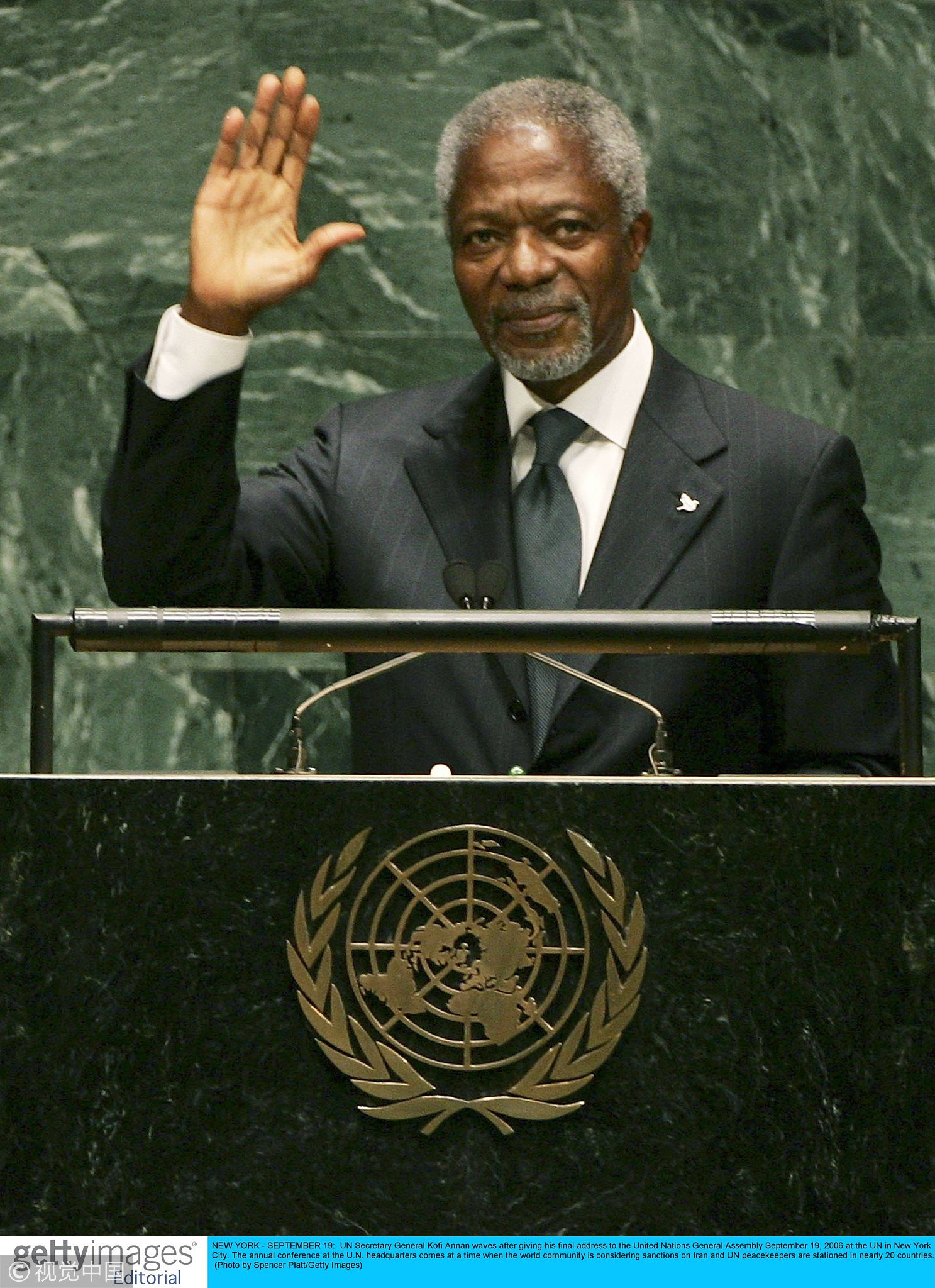
UN Secretary General Kofi Annan waves after giving his final address to the United Nations General Assembly on Sept. 19, 2006, at the UN in New York City. /VCG Photo
UN Secretary General Kofi Annan waves after giving his final address to the United Nations General Assembly on Sept. 19, 2006, at the UN in New York City. /VCG Photo
Chinua Achebe: The writer who brought Africa to the world
The first post-colonial writer; the father of modern African literature; the greatest writer never to have won the Nobel Prize. All these descriptions have been applied to Nigeria's Chinua Achebe, who sought to reclaim Africa's literary voice from Western control.
Achebe's stories tackled complex issues of African identity, nationalism and decolonization. Released nearly 60 years ago in 1958, his first novel “Things Fall Apart” was set as a required text in schools across the continent. It has also been translated into 57 languages and 20 million copies have been sold worldwide. On Nov. 16, 2017, Google had a doodle for Chinua Achebe's 87th birthday, paying respect to the literary pioneer.
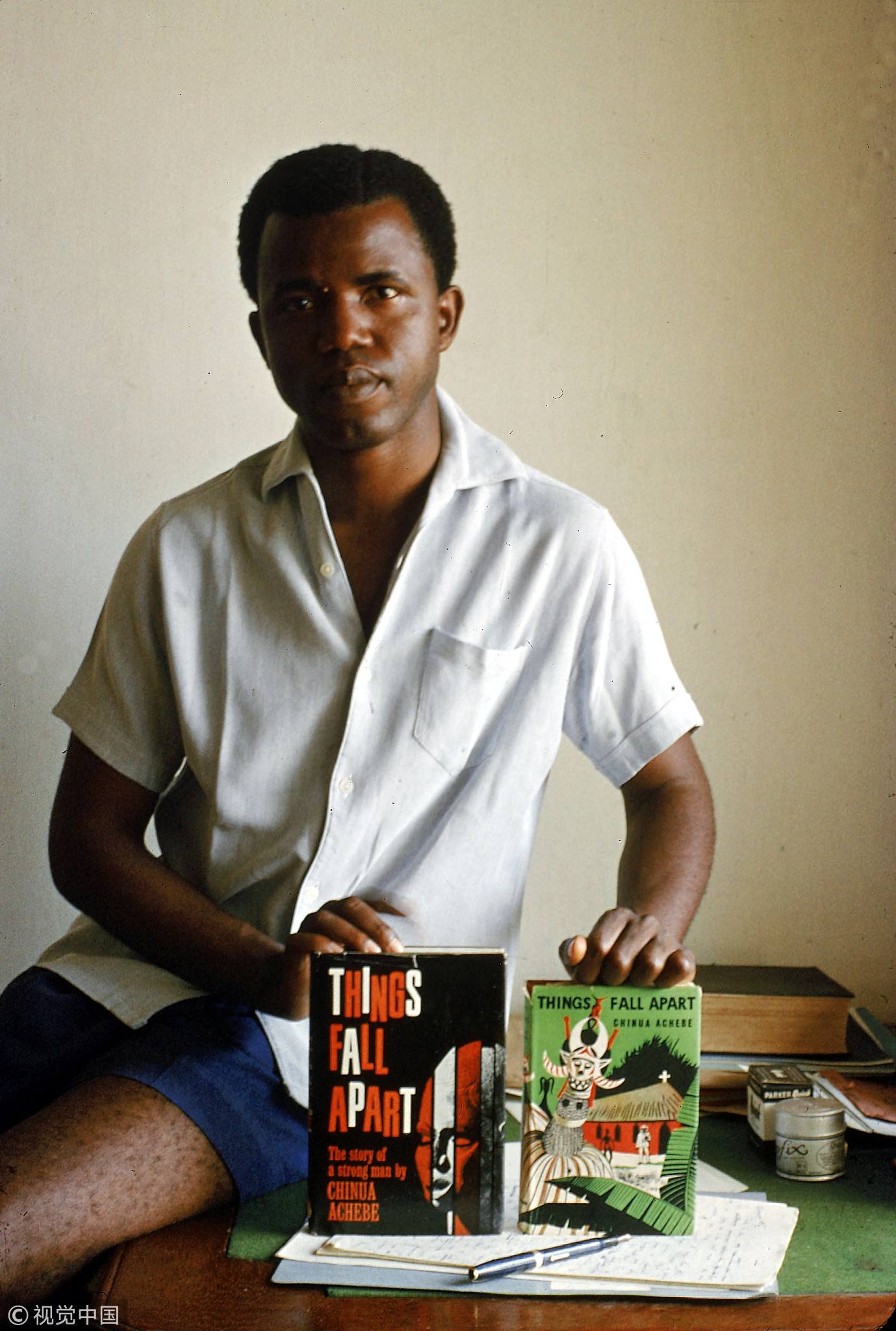
Nigerian author Chinua Achebe holds two editions of his book “Things Fall Apart” in his youth. /VCG Photo
Nigerian author Chinua Achebe holds two editions of his book “Things Fall Apart” in his youth. /VCG Photo
Didier Drogba: African soccer legend plays for peace
As one of the most successful soccer players of all time, Didier Drogba has earned worldwide acclaim both as a professional sportsman and champion for peace in his native Cote d'Ivoire. After Drogba helped the Cote d'Ivoire team qualify for the 2006 World Cup, he called for an end to the ongoing civil war that ravaged the country, asking the combatants to lay down their arms, a plea which was answered with a ceasefire.
Using fame as a tool for social change, Drogba conveyed how his actions influenced the non-violent political elections and the embodiment of humanity through the call for unity. In 2010, TIME magazine included Drogba among the 100 most influential people in the world. Athletes in other countries are inspired to use their popularity for the good of others, and for peace.
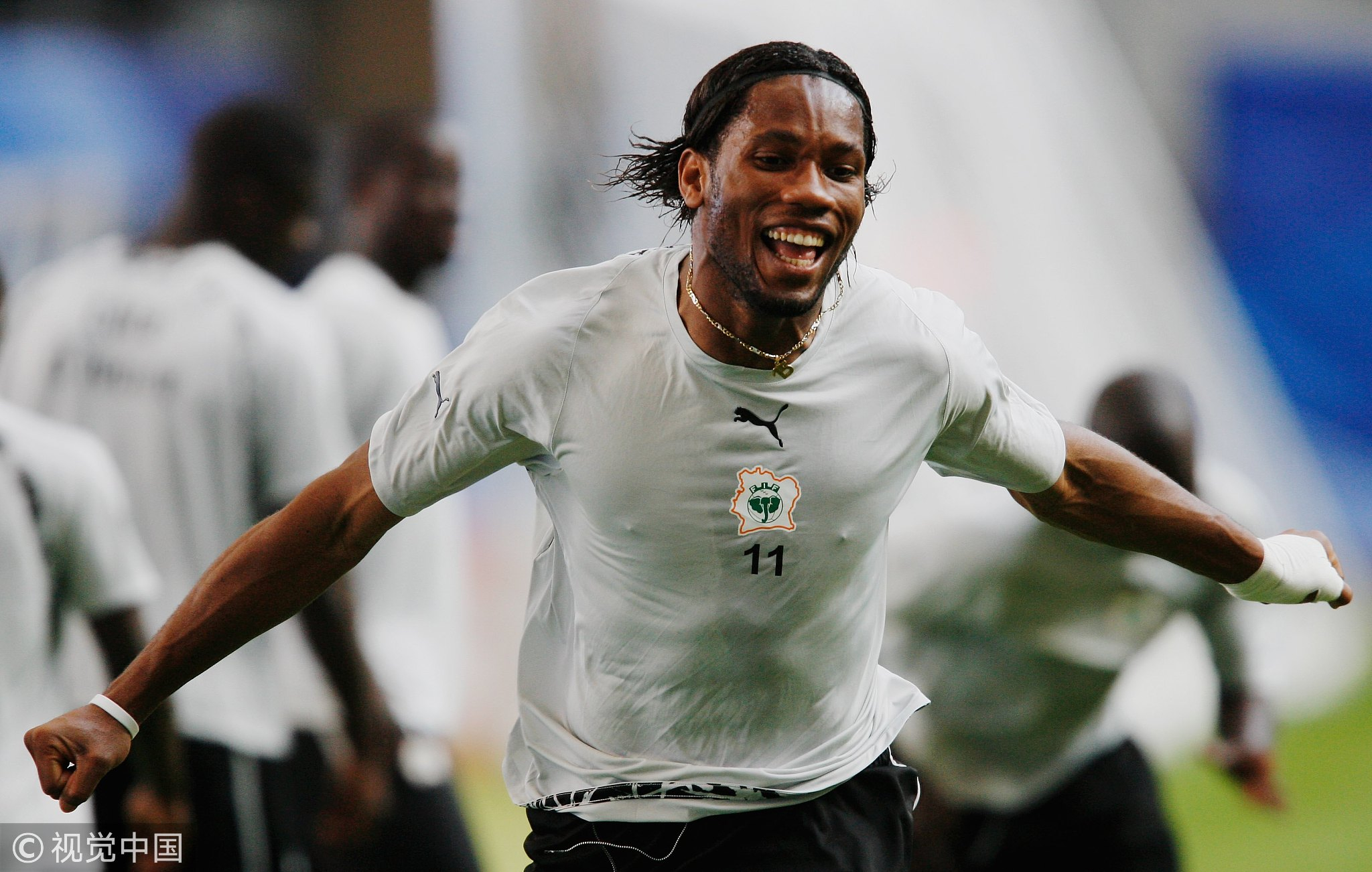
Didier Drogba of Cote d'Ivoire celebrates during his teams training session, at the Stadium Hamburg, June 9, 2006, in Hamburg, Germany. /VCG Photo
Didier Drogba of Cote d'Ivoire celebrates during his teams training session, at the Stadium Hamburg, June 9, 2006, in Hamburg, Germany. /VCG Photo
Waris Dirie: Fashion icon wants to save all 'little desert flowers'
Having in her lifetime gone from Somalian nomad to international supermodel, Waris Dirie exerted her influence in the fight against female genital mutilation (FGM) through the bestselling biography “Desert Flower.” Her celebrity status helped to catapult the topic into the public eye, and Kofi Annan appointed her the UN Population Fund's special ambassador for the elimination of FGM in 1997.
Since then, Waris Dirie traveled and spoke extensively, pursuing her goal of preventing future generations of women from suffering as she had. She continues to fight hard for the lives of girls to be less punitive and unfair. Many have joined her to bring attention to the matter across the world and in countries where people thought the tradition would never change.
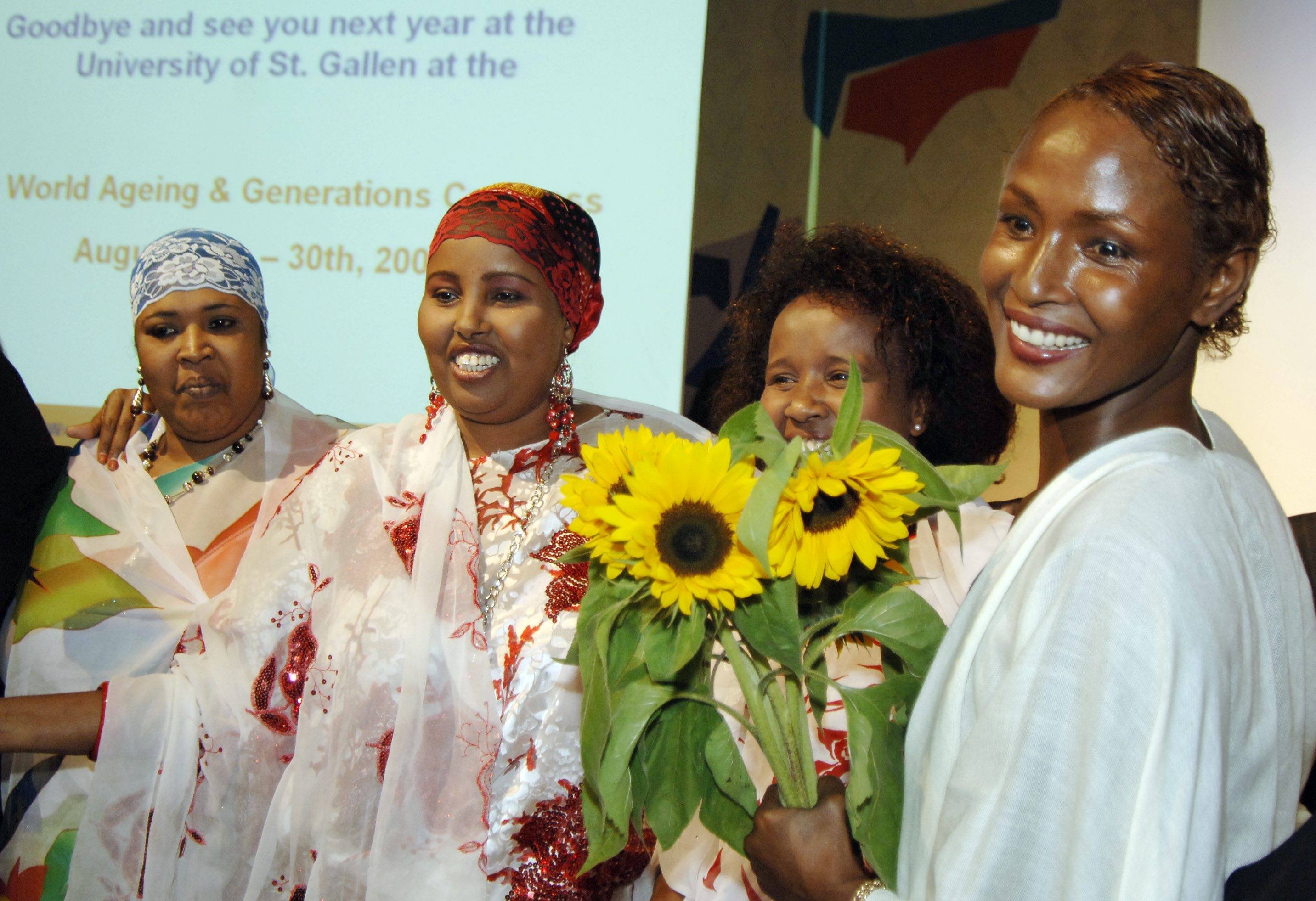
“Desert Flower” Waris Dirie (R) smiles together with a group of Somalian women, after receiving the “Prix des Generations” award of the World Demographic Association in Switzerland, September 8, 2007. /VCG Photo
“Desert Flower” Waris Dirie (R) smiles together with a group of Somalian women, after receiving the “Prix des Generations” award of the World Demographic Association in Switzerland, September 8, 2007. /VCG Photo
Wangari Maathai: Environmentalist fights poverty with trees
Wangari Maathai, one of the most widely respected women in Africa, played many roles — environmentalist, feminist, professor and head of the Green Belt Movement, which she founded in 1977. The Kenyan activist became the first woman from Africa to win the Nobel Peace Prize in 2004, 30 years after her efforts to reforest her country by paying poor women a few shillings to plant trees.
Until her death in 2011, Maathai continued to do her “little thing” — planting trees one seed at a time. “When we plant trees, we plant seeds of peace and hope,” Maathai said. Rather than giving speeches on how the environment is being destroyed, she inspired the common people to do their own little part to save the planet.
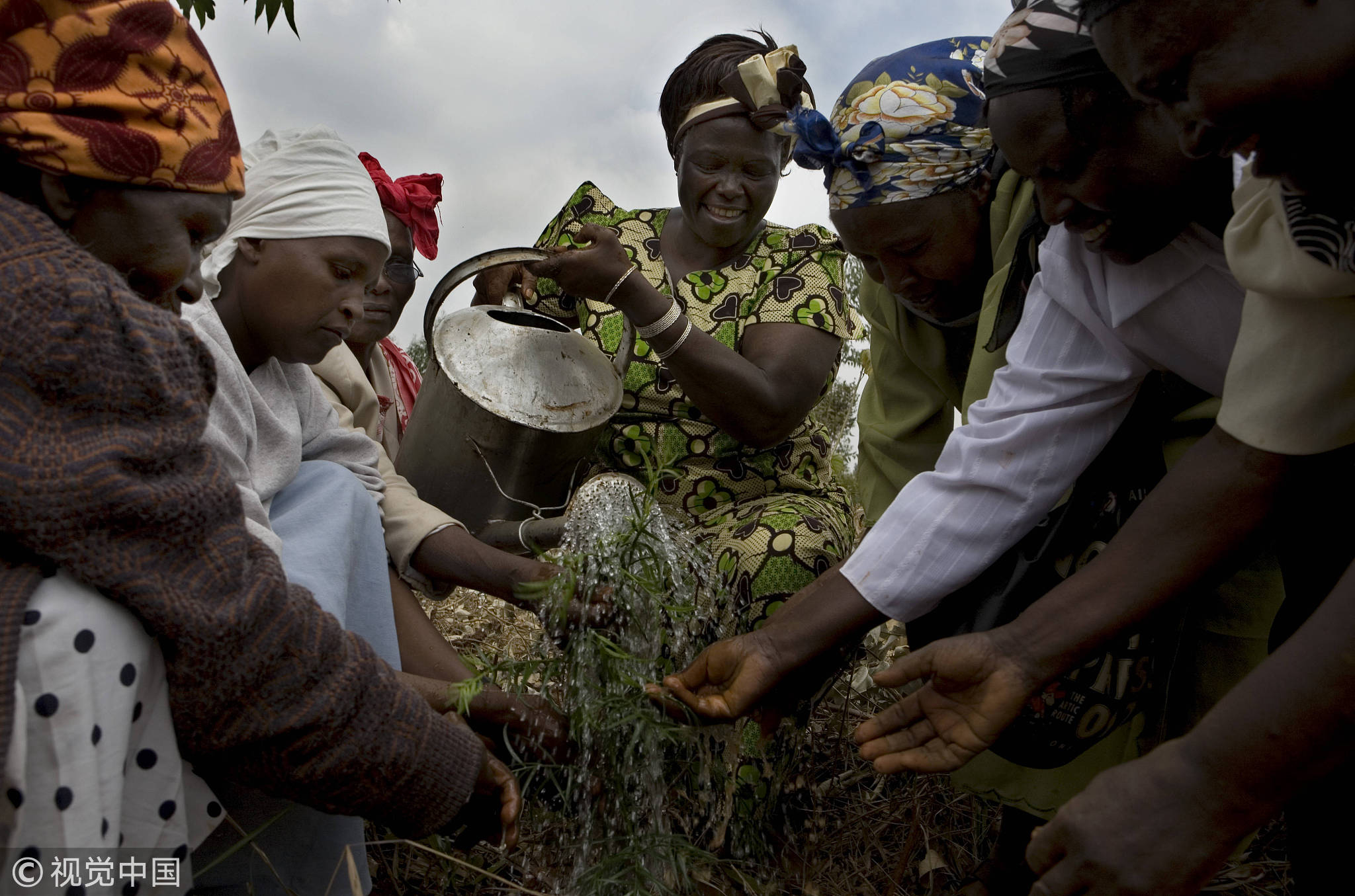
Nobel Peace Prize laureate Wangari Maathai (C) plants trees with volunteers to rehabilitate a cleared section of Karura Forest in Nairobi, Kenya. /VCG Photo
Nobel Peace Prize laureate Wangari Maathai (C) plants trees with volunteers to rehabilitate a cleared section of Karura Forest in Nairobi, Kenya. /VCG Photo

